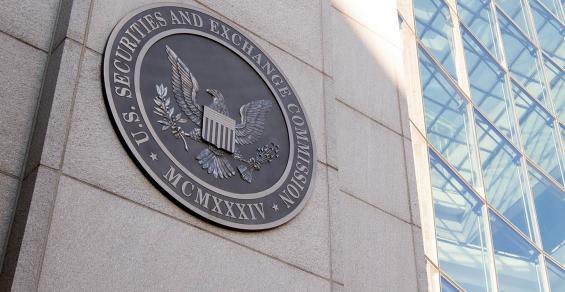Farmers and ranchers could be forced to report personal information and business-related data under new climate rule.
Over a hundred agriculture organizations are asking the Securities and Exchange Commission for an extension of time to comment on its proposed rule, “The Enhancement and Standardization of Climate Related Disclosures for Investors.” The recent SEC proposed rule could reach nearly every farmer and rancher, the 119 signatories warned.
The SEC – whose primary purpose is to protect investors, maintain efficient markets and facilitate capital formation – now wants to require public companies to report data about their entire supply chain, explains the American Farm Bureau Federation. In late March, the SEC voted 3-1 to advance the rule. The proposed rule is 510 pages long with 1,068 technical footnotes and almost 750 direct questions, but the SEC has only allowed 39 days for review.
Nearly every farmer’s and rancher’s products eventually touch a publicly traded company, meaning that farmers and ranchers could be forced to report personal information and business-related data. “This unprecedented overreach could create onerous reporting requirements for even small farms and ranches with few or no employees,” AFBF warns.
Under the regulation, a large meatpacking firm, for example, would need to report its greenhouse gas emissions, provide environmental risk analyses and detail other potentially sensitive business data as part of its regular financial filings and provide climate-related information from every farm supplying it with livestock, explains the National Pork Producers Council. Likewise, a publicly-traded fertilizer company would need to report its climate information and similar data from farms to which it sold fertilizer.
Related: Will the SEC climate rule prevent you from getting loans?
The agricultural groups in a letter to SEC Secretary Vanessa Countryman asked for an additional 180 days to review and comment on the regulation, which one research and advisory company with experience in environmental, social and governance reporting estimated would cost companies $6.7 billion over the next three years.
AFBF President Zippy Duvall explains this appears to be an example of overreach by the SEC. “Farmers and ranchers are already heavily regulated by multiple agencies at the local, state and the federal level. New SEC reporting requirements will no doubt make an already complicated patchwork of regulations even more cumbersome,” Duvall says.
“Farmers and ranchers are focused on growing the food, fuel and fiber this country needs, and have never been subjected to SEC regulations. Unlike the large corporations currently regulated by the SEC, family farms and ranches don’t have teams of compliance officers. We urge the SEC to extend the comment period to allow those in agriculture time to understand the full impact of this proposal and offer meaningful input.”
The proposed rule “may create multiple, new sources of substantial costs and liabilities,” the letter states. “These include almost certain reporting obligations, technical challenges, significant financial and operational disruption and the risk of financially crippling legal liabilities.”
“Currently, farmers are not subject to the jurisdiction and oversight of the SEC,” says John Kran, Michigan Farm Bureau national legislative counsel. “Farms are unique in that few business owners outside of farming live at their place of business. This raises serious privacy concerns for farmers, including how their personal information will be protected in the reporting process, along with questions over potential legal liabilities.”
“Farmers facing drastic changes to their operations by this proposed rule don’t have a team of lawyers and accountants to sift through this colossal document,” Kran adds. “Simply put, we need more time in order to fully review the SEC’s proposal, retain legal and technical expertise, and understand the myriad ways it might impact our members.”





